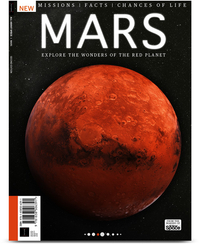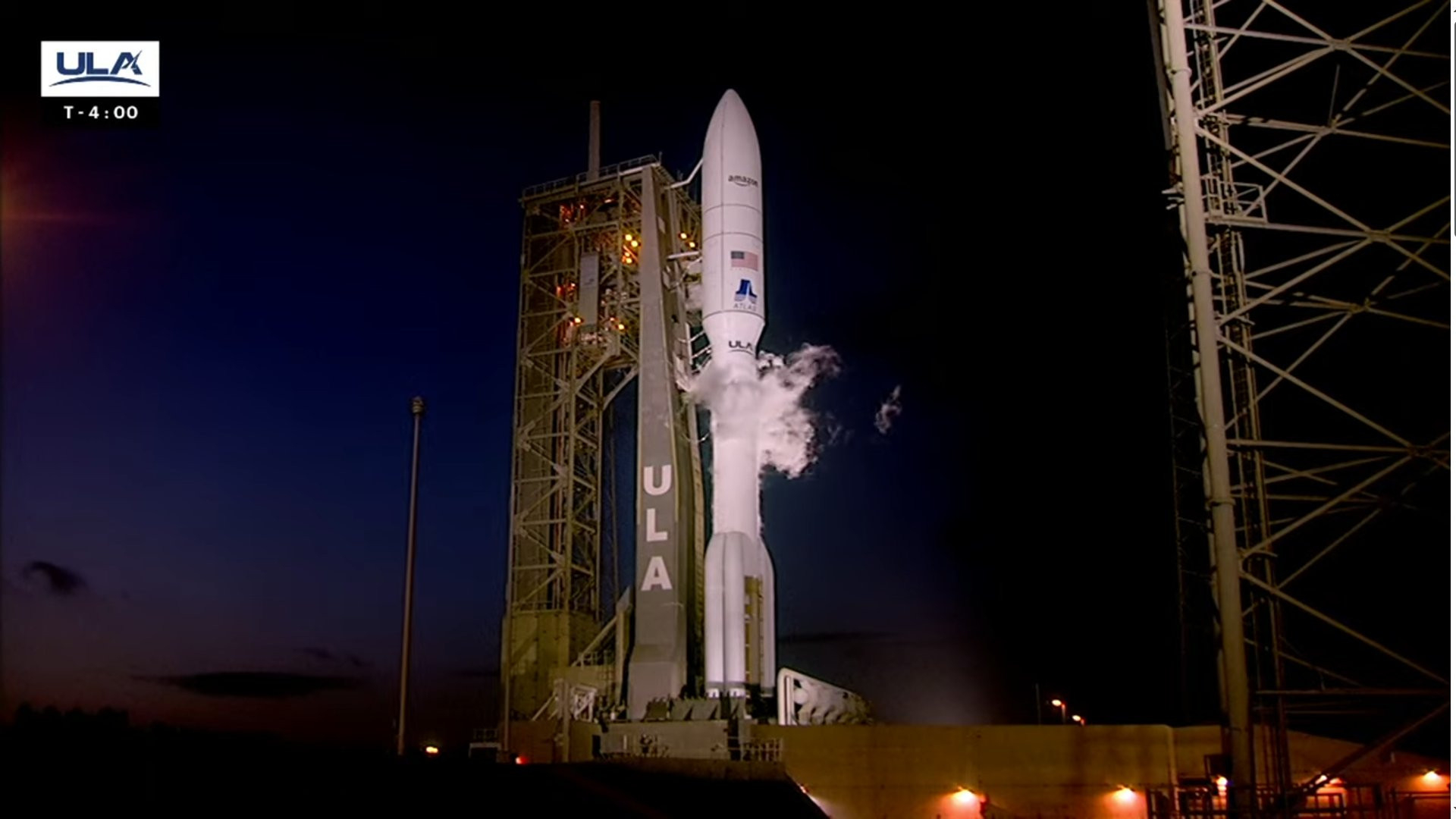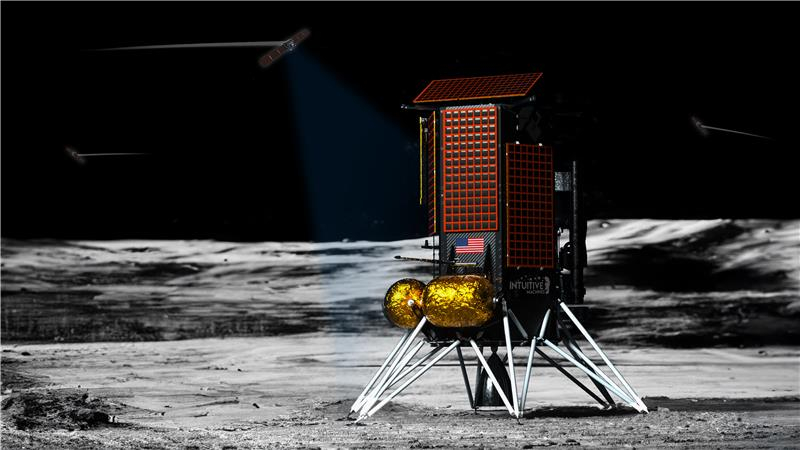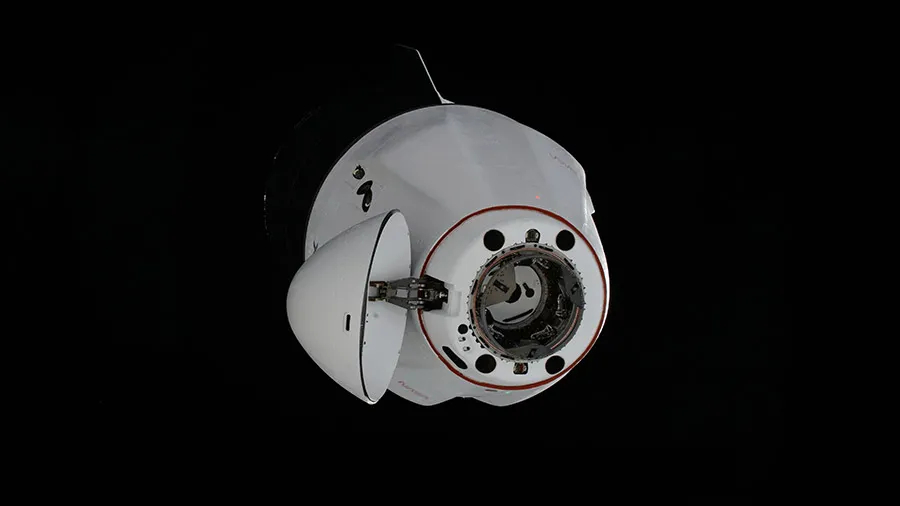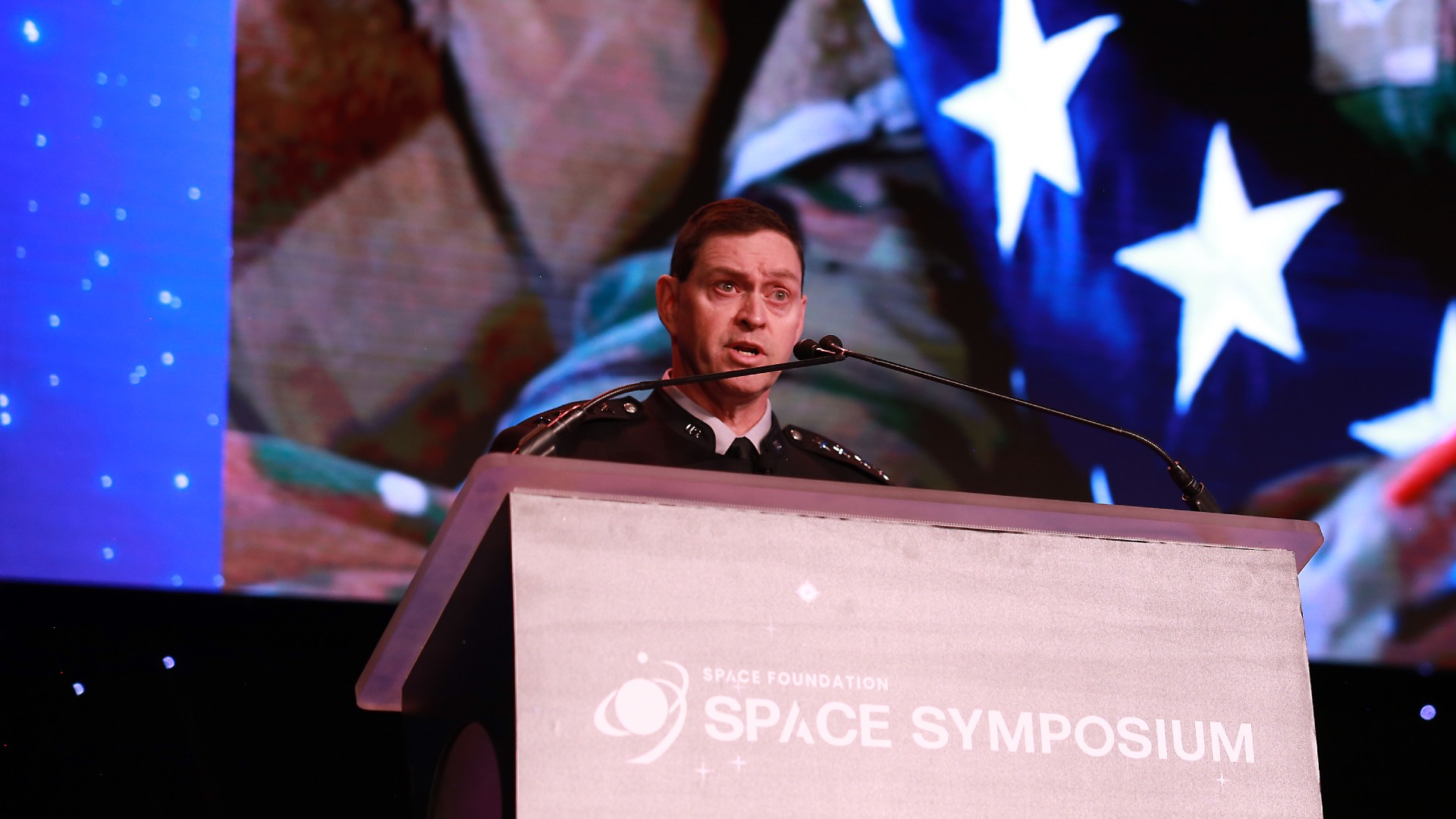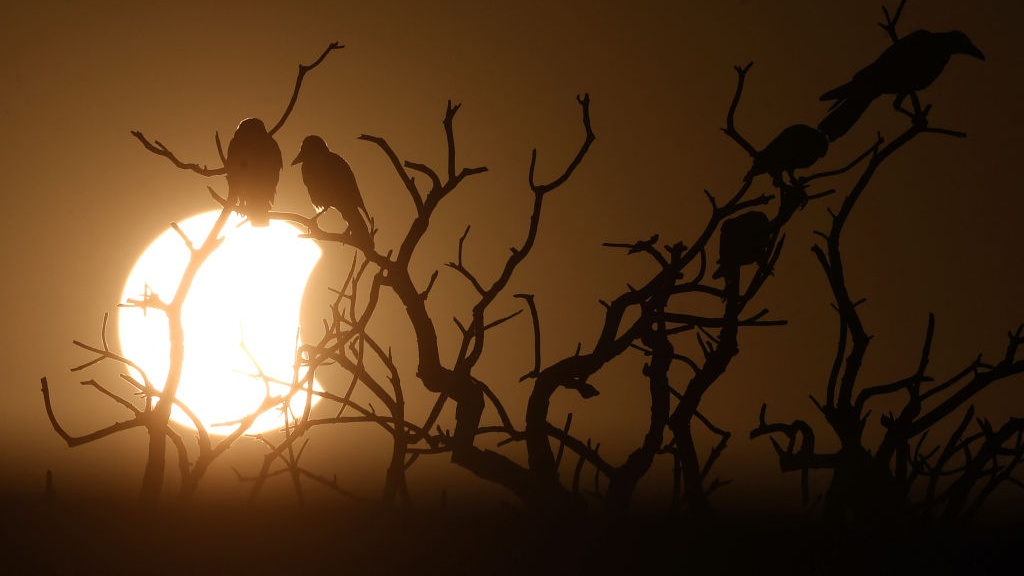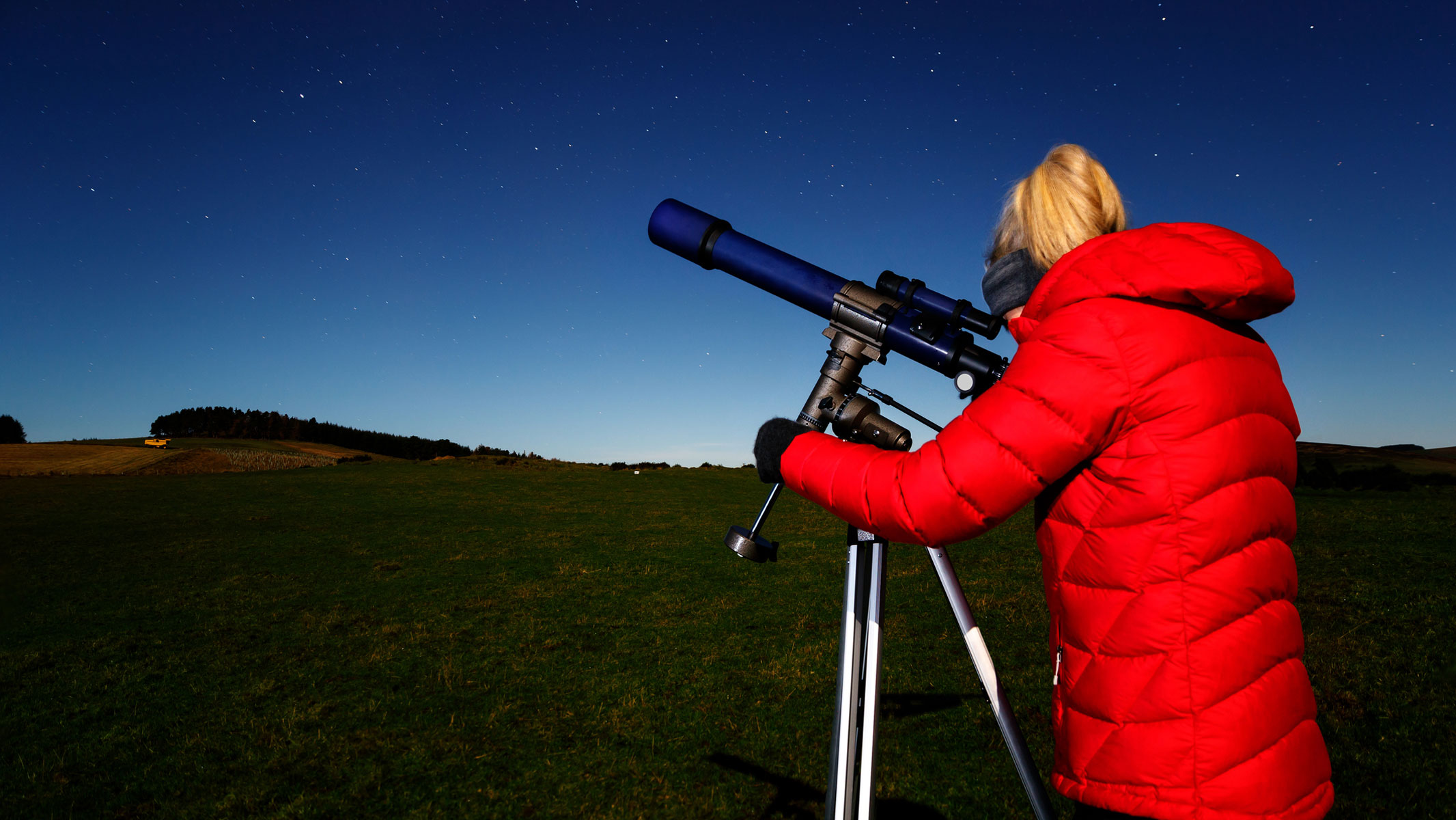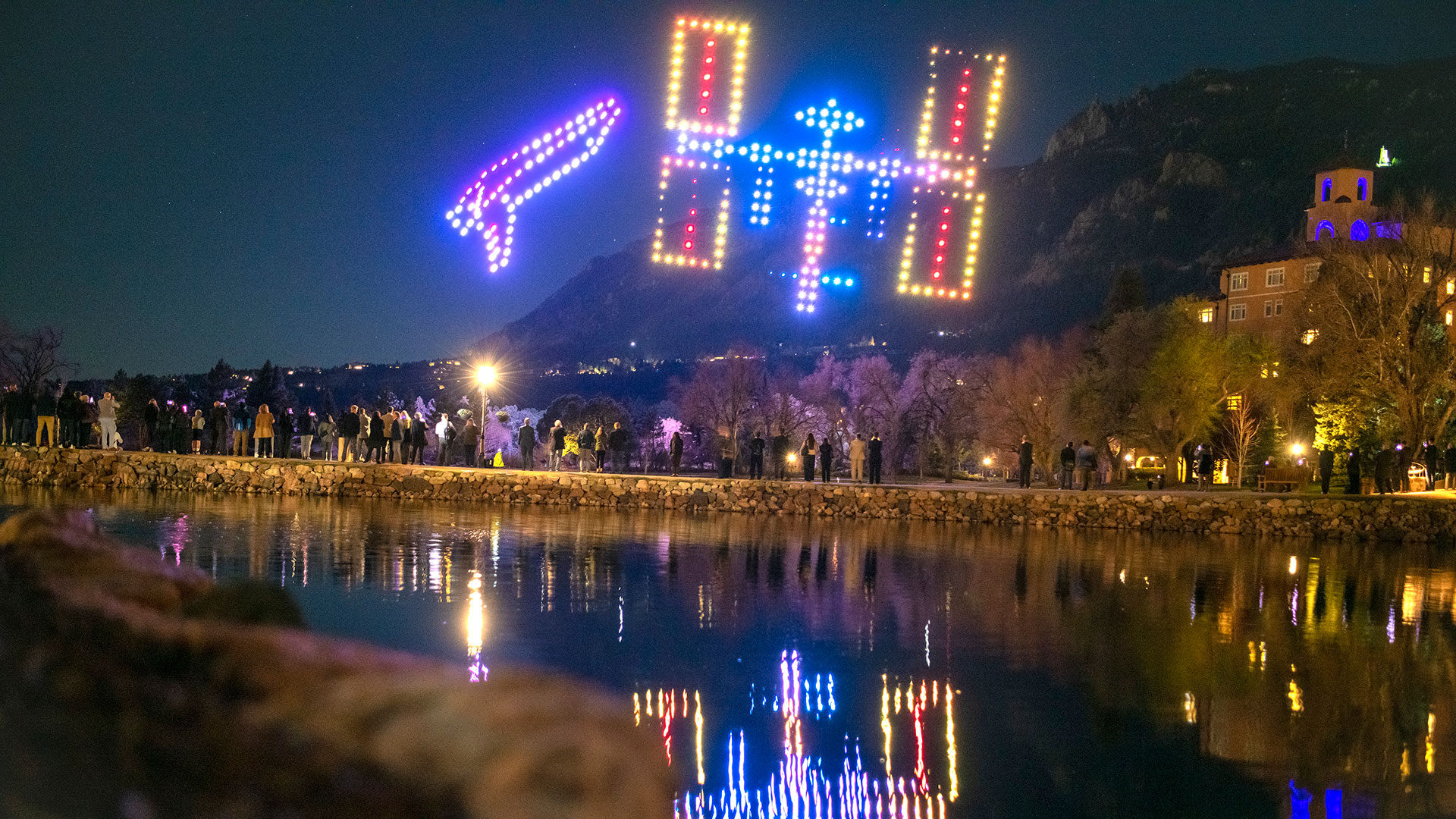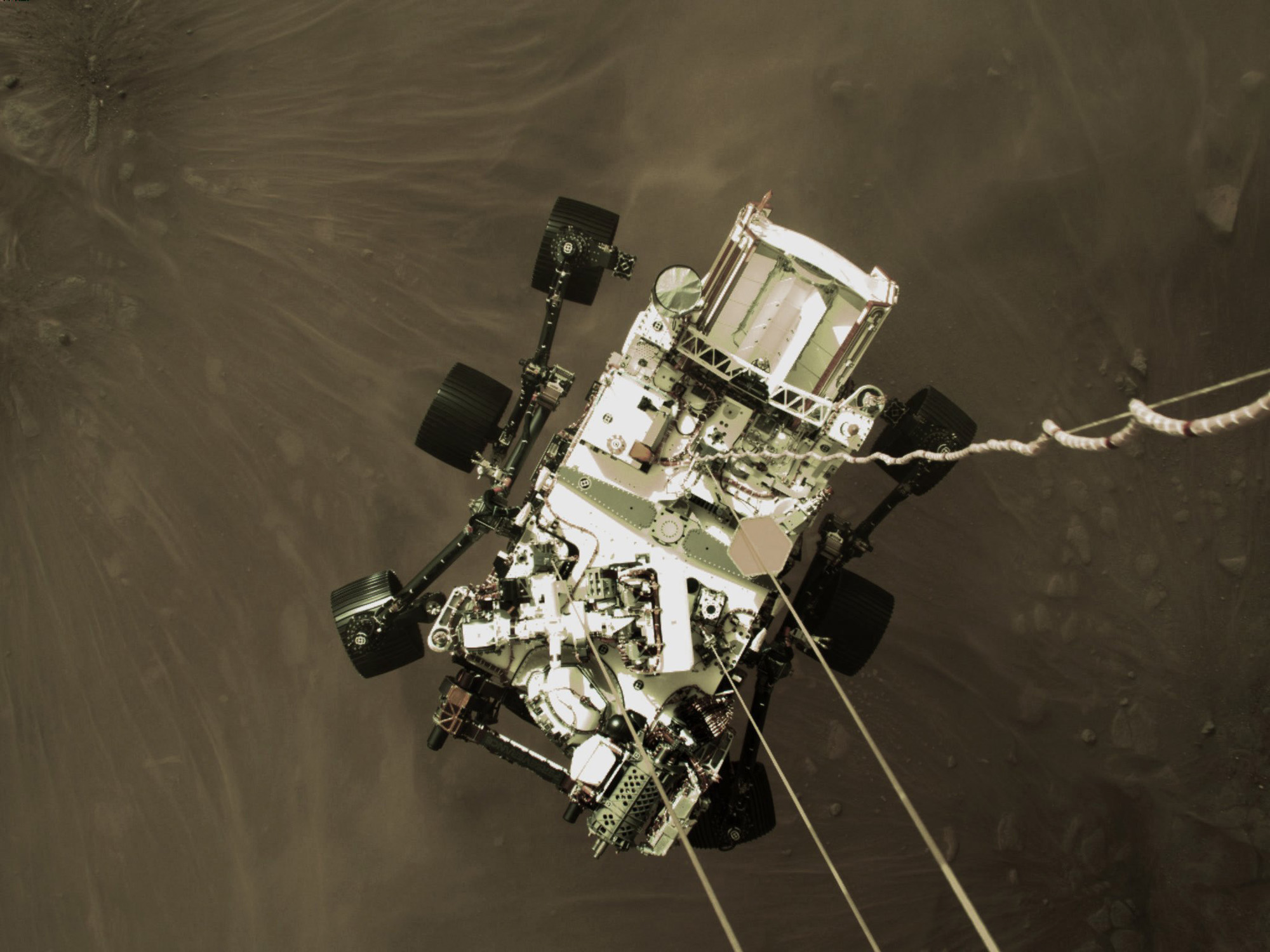
This may be the next iconic space photo.
NASA just released an image showing its Perseverance Mars rover dangling about 6.5 feet (2 meters) above the red dirt during its picture-perfect touchdown inside Jezero Crater yesterday (Feb. 18). The stunning photo was taken by a camera on Perseverance's "sky crane" descent stage, which had nearly finished lowering the SUV-sized robot to the surface on cables at the time.
The image breaks new ground, documenting a Mars landing with detail and immediacy never seen before. It therefore deserves mention with the famous space photos that have moved us all over the years, such as the classic picture of Apollo 11 astronaut Buzz Aldrin on the moon in July 1969 and the Hubble Space Telescope's famous "Pillars of Creation" shot, said Adam Steltzner, the chief engineer for Perseverance's mission, which is known as Mars 2020.
Related: What's next for Perseverance after Mars landing success?
Live updates: Follow the Perseverance Mars rover mission
Book of Mars: $22.99 at Magazines Direct
Within 148 pages, explore the mysteries of Mars. With the latest generation of rovers, landers and orbiters heading to the Red Planet, we're discovering even more of this world's secrets than ever before. Find out about its landscape and formation, discover the truth about water on Mars and the search for life, and explore the possibility that the fourth rock from the sun may one day be our next home.
"It is absolutely exhilarating, and it is evocative of those other images from our experience as human beings, moving out into our solar system — those images that bring us into the process of our exploration," Steltzner said during a news conference today (Feb. 19) at which the new image was unveiled. "And I'm so happy that we can contribute another to that collection."
The epic pre-landing photo is just a taste of what's to come. It's part of a high-definition video captured by multiple cameras during Perseverance's entry, descent and landing (EDL), which the Mars 2020 team hopes to have ready to show us by Monday (Feb. 22).
That video could include sound, for the rover sports an EDL microphone. The team does not yet know whether that mic worked yesterday, Steltzner said; that question should be answered over the weekend as Perseverance beams more data home to Earth.
Get the Space.com Newsletter
Breaking space news, the latest updates on rocket launches, skywatching events and more!
Related: NASA's Mars 2020 rover mission in pictures
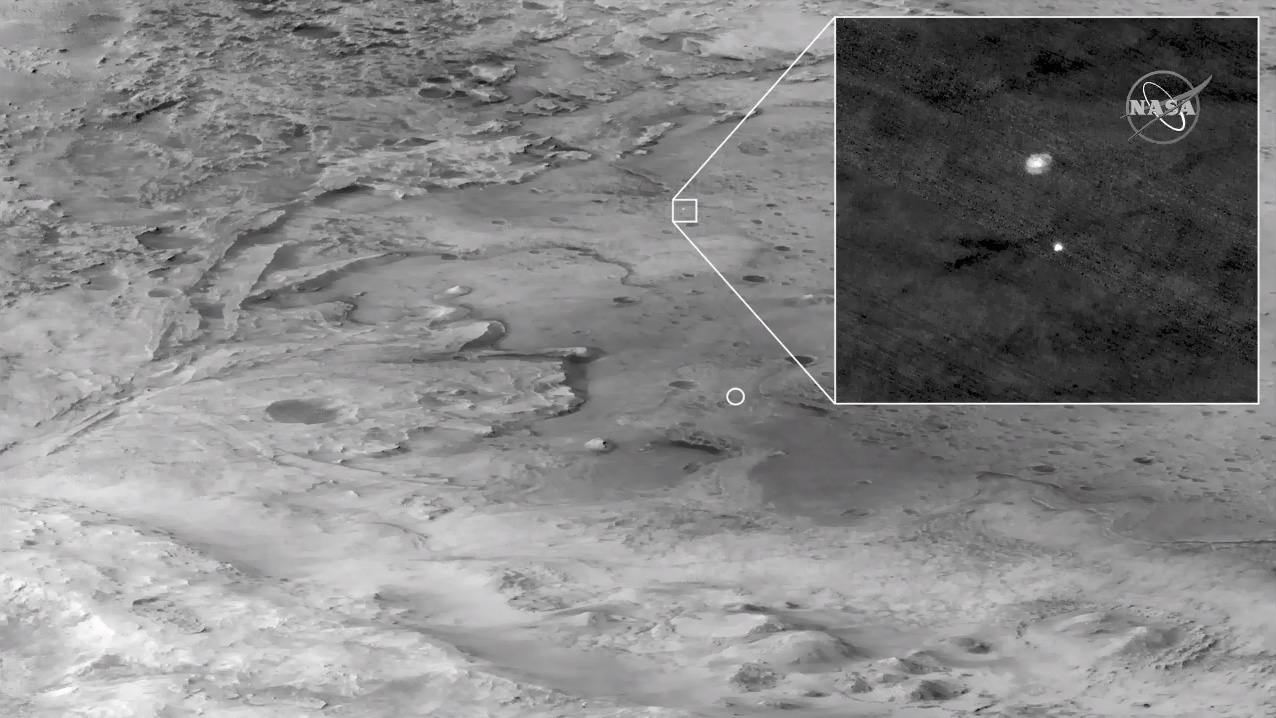
Join our forums here to discuss the Perseverance Mars rover landing. What do you hope finds?
The rover's landing sequence was also captured from afar, NASA officials announced today. The agency's Mars Reconnaissance Orbiter, which has been circling the Red Planet since 2006, snapped a shot of Mars 2020 cruising through the alien skies beneath its supersonic parachute.
"We're still figuring out the exact timing of when this image was taken as well," Aaron Stehura, the Mars 2020 EDL deputy phase lead, said during today's news conference.
"So, it's even possible that we had already come out of the protective entry capsule and we're coming down on rockets to the surface," Stehura said. He, like Steltzner, is based at NASA's Jet Propulsion Laboratory (JPL) in Southern California, which manages the Mars 2020 mission.
The $2.7 billion Mars 2020 is ambitious and diverse. It has two main goals: hunt for signs of ancient life on the floor of the 28-mile-wide (45 kilometers) Jezero, which hosted a lake and a river delta billions of years ago; and collect several dozen especially promising samples for future return to Earth.
But Perseverance is not quite ready to dig into this science work in earnest. The team must first perform the standard post-landing assessments, health checks and deployments, which will take a few days. Those checkouts are already underway, and the early returns are good.
"I'm happy to say that the rover is doing great and is healthy on the surface of Mars," Pauline Hwang of JPL, the Mars 2020 strategic mission manager, said during today's briefing. Perseverance "continues to be highly, highly functional and awesome, and I'm exhilarated," she added.
The six-wheeled robot also still needs to switch over to surface-optimized software, a crucial task that will begin soon and require about four days to complete.
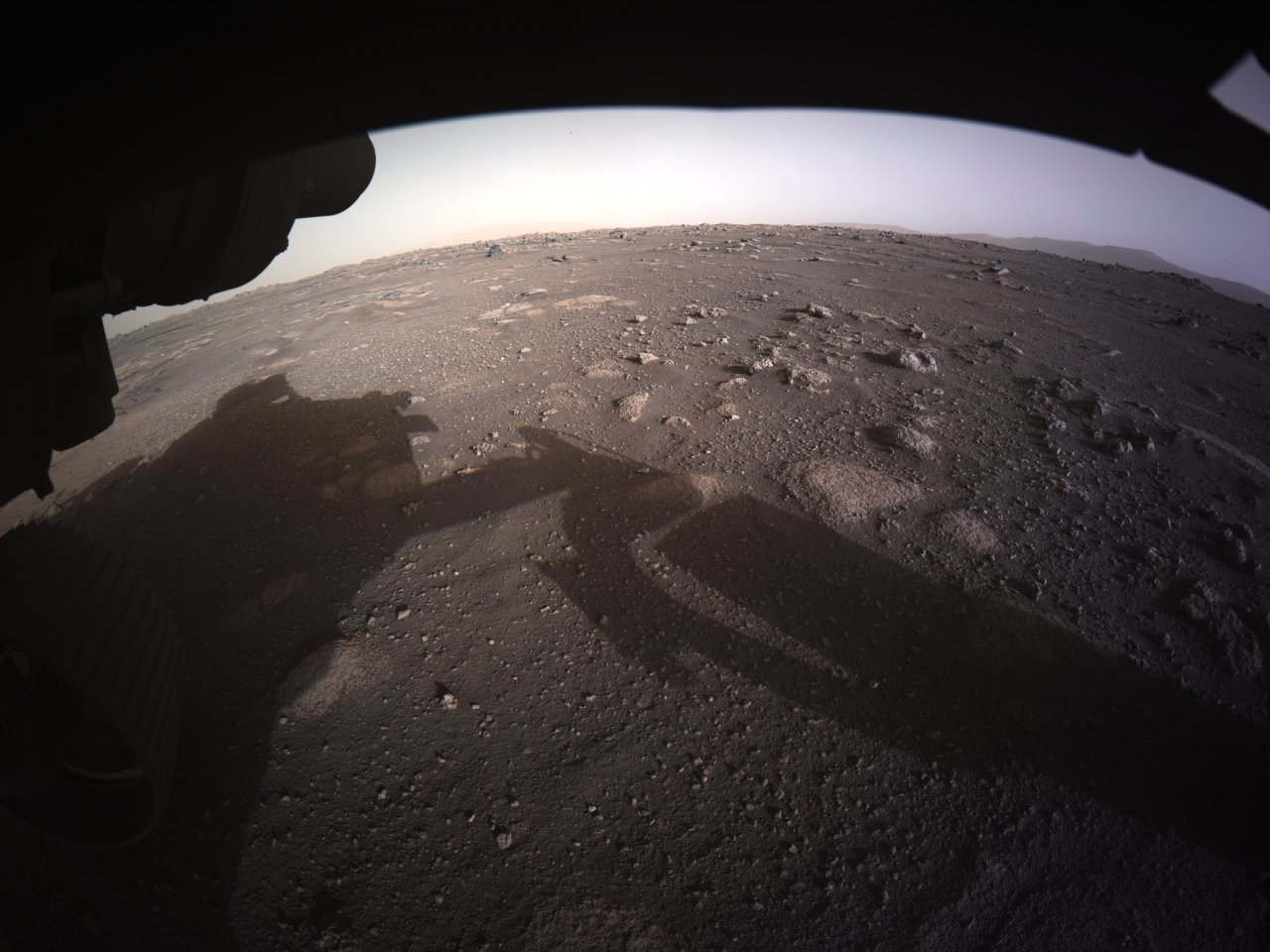
When Perseverance is ready to roll, its first destination will be a helipad — a good spot for the mission's helicopter, named Ingenuity, to make a handful of pioneering flights. Ingenuity traveled to Mars on Perseverance's belly and remains attached today; it will drop to the ground at the helipad, which the Mars 2020 team has not yet identified, then take to the skies after Perseverance has rolled a safe distance away.
Ingenuity doesn't have any science instruments — it's a technology demonstration — but the little craft can take color photos and video, so it may give us an amazing, bird's eye view of Jezero. And Perseverance will attempt to document the 4-lb. (1.8 kilograms) chopper's flights, both with its cameras and its two microphones. (The other mic is part of the rover's rock-zapping SuperCam instrument.)
It's unclear how long all of this will take. But during a post-landing news conference yesterday, Mars 2020 deputy project manager Jennifer Trosper, also of JPL, gave an estimate: helicopter prep and flights occurring in the spring, and sampling and science work really ramping up this summer.
Mike Wall is the author of "Out There" (Grand Central Publishing, 2018; illustrated by Karl Tate), a book about the search for alien life. Follow him on Twitter @michaeldwall. Follow us on Twitter @Spacedotcom or Facebook.
Join our Space Forums to keep talking space on the latest missions, night sky and more! And if you have a news tip, correction or comment, let us know at: community@space.com.

Michael Wall is a Senior Space Writer with Space.com and joined the team in 2010. He primarily covers exoplanets, spaceflight and military space, but has been known to dabble in the space art beat. His book about the search for alien life, "Out There," was published on Nov. 13, 2018. Before becoming a science writer, Michael worked as a herpetologist and wildlife biologist. He has a Ph.D. in evolutionary biology from the University of Sydney, Australia, a bachelor's degree from the University of Arizona, and a graduate certificate in science writing from the University of California, Santa Cruz. To find out what his latest project is, you can follow Michael on Twitter.
